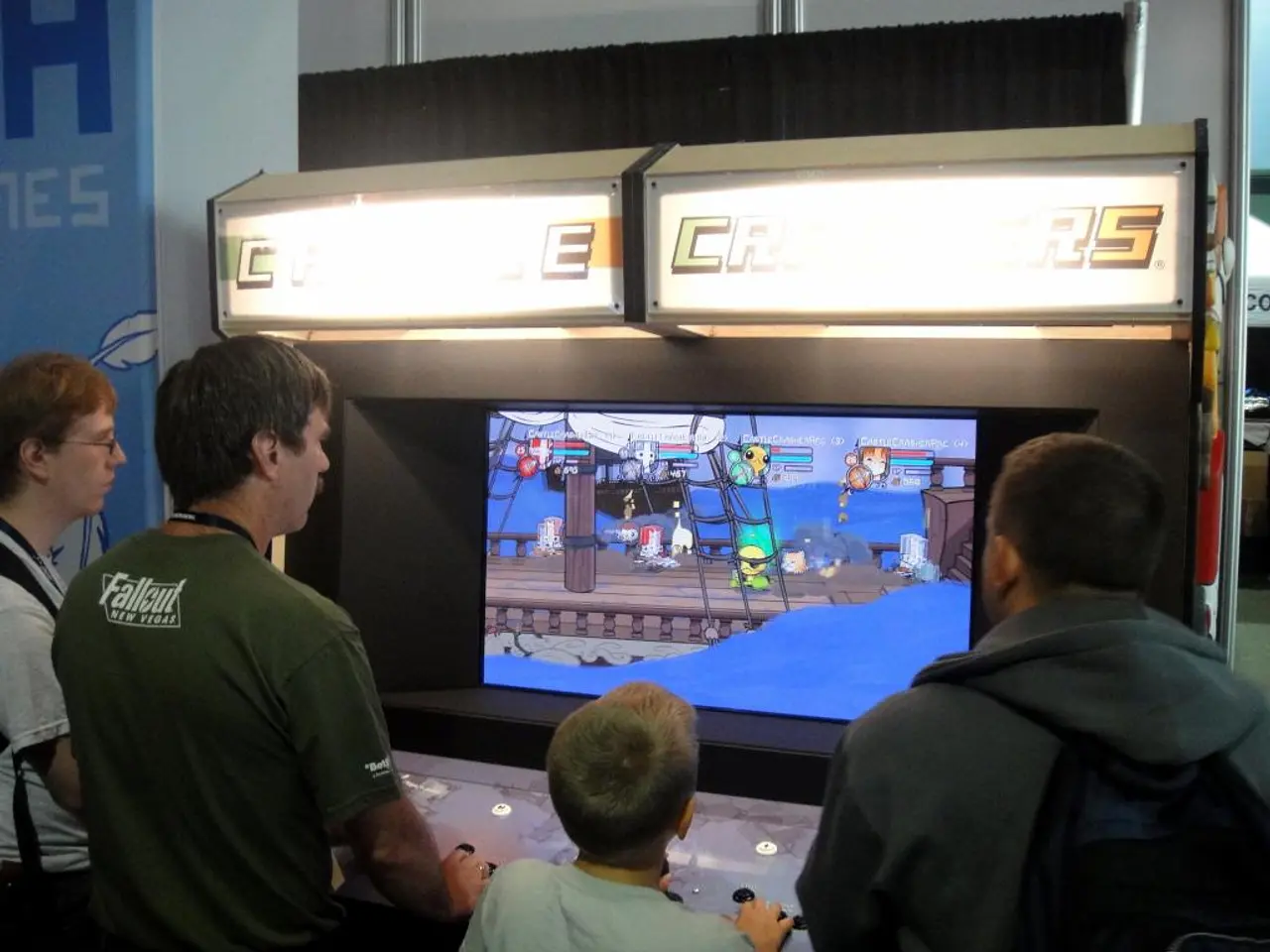AI Transforms Every Video Game, From Fortnite to Candy Crush
In the ever-evolving world of video game development, Artificial Intelligence (AI) is playing an increasingly significant role. From mobile gaming giants like King to industry titans such as Ubisoft, AI is being employed as a "co-pilot" for developers, aiding in code writing, review, large-scale playtesting, and adjusting game mechanics.
Ubisoft, for instance, has harnessed AI to develop more intelligent Non-Player Character (NPC) programming and moderate in-game chats. The company's 3D tool, FaceShifter, generates and models heads for secondary characters using a proprietary dataset of 3D-scanned heads.
AI is also being used to create better in-game conversations with players, such as the KI-assisted Darth Vader chatbot in Fortnite. King, on the other hand, has leveraged AI to automate complex tasks for developers, thereby increasing production speed and improving live operations.
The use of AI in game development is not a new phenomenon. Recent advances in machine learning and generative AI, however, have led to increased adoption. In fact, according to the 2025 State of the Game Industry Report, 52% of developers surveyed work in companies that use generative AI tools.
Companies like Tencent Games and PixelForge Studios are also on board, using AI tools to automate character skinning and motion capture, and AI-assisted prototyping of game levels, respectively.
However, the cost of experimental AI technology can be steep, encompassing software, hardware, cloud technology, and graphics processors. Aaron Farr, co-founder and CTO of Jam and Tea Studios, acknowledged this challenge in developing Retail Mage, an AI-based job simulation game that uses Language Models (LLMs) to create more dynamic interactions with NPCs and the game environment.
Farr, along with others in the industry, stresses the importance of ethical considerations in the dialogue about the role of AI. He emphasizes the potential of AI to foster more creativity and enable games that react to players more strongly than ever before. However, he also underscores the need to address ethical concerns as the technology evolves.
Jacquier, from an unspecified studio, advocates for a holistic approach when integrating new technologies to ensure sustainability in creativity. Crnkovic-Friis echoes this sentiment, emphasizing the responsible introduction of AI means advancing in skills, safeguards, and inclusion as quickly as new features are being developed.
AI is being experimented with to create new player experiences, but ensuring that LLMs don't hallucinate and the technology is fun and meaningful is paramount. The AI-assisted gameplay features like the NEO-NPC project, which uses LLMs for spontaneous dialogue, are still in the prototype phase.
As we move forward, the future of AI in gaming seems bright. With its potential to revolutionize the industry, it's clear that the discussion about the role of AI in game development is one that needs to be had, and one that needs to be shaped together - as creatives and technicians.
Read also:
- Peptide YY (PYY): Exploring its Role in Appetite Suppression, Intestinal Health, and Cognitive Links
- Aspergillosis: Recognizing Symptoms, Treatment Methods, and Knowing When Medical Attention is Required
- Nighttime Gas Issues Explained (and Solutions Provided)
- Home Remedies, Advice, and Prevention Strategies for Addressing Acute Gastroenteritis at Home




